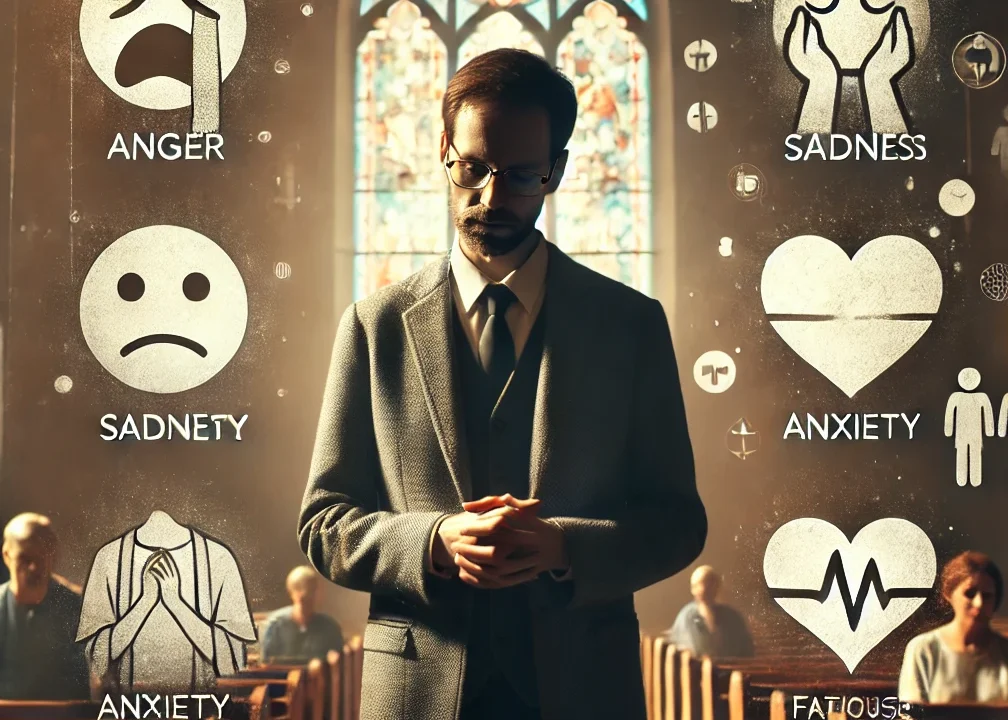
Table of Contents
When a leader in your church experiences a moral failure, the fallout can be overwhelming. As a pastor or church staff member, you are not only responsible for guiding your congregation through this difficult time, but you are also dealing with your own emotions. It’s crucial to acknowledge and navigate your own grief and shock effectively to maintain your well-being and provide the best support to others.
Recognizing the Signs of Grief and Shock
Grief and shock can manifest in various ways. Recognizing these signs is the first step in addressing your emotions. Common symptoms include:
Emotional Numbness: Feeling detached or unable to process emotions.
Anger and Frustration: Experiencing intense anger towards the situation or individuals involved.
Sadness and Depression: Feeling deep sorrow, hopelessness, or a lack of motivation.
Anxiety and Fear: Worrying about the future and the implications of the moral failure.
Physical Symptoms: Fatigue, headaches, stomach issues, or changes in sleep patterns.
Cognitive Disruptions: Difficulty concentrating, making decisions, or remembering things.
Accepting Your Emotions
It is essential to accept your emotions without judgment. Understand that feeling grief and shock is a natural response to a traumatic event. Allow yourself to experience these emotions fully instead of suppressing them. This acceptance is a crucial step towards healing.
Practical Steps to Navigate Your Emotions
Seek Support: Reach out to trusted friends, family members, or colleagues. Talking about your feelings can provide relief and perspective.
Engage in Self-Care: Prioritize activities that nurture your physical, emotional, and spiritual well-being. This could include exercise, prayer, meditation, reading, or hobbies you enjoy.
Limit Media Consumption: Constant exposure to news or gossip about the moral failure can exacerbate your grief and shock. Set boundaries on how much information you consume.
Professional Help: Consider seeking the help of a counselor or therapist. A professional can provide you with tools and strategies to manage your emotions effectively.
Spiritual Practices: Lean into your faith. Engage in personal spiritual practices such as prayer, meditation, and reading scripture to find solace and guidance.
Journaling: Writing down your thoughts and feelings can be a therapeutic way to process your emotions. It can also help you track your emotional journey over time.
Rest and Nutrition: Ensure you are getting adequate rest and maintaining a healthy diet. Physical well-being significantly impacts emotional resilience.
Creating a Supportive Environment
As you navigate your emotions, it’s also important to create a supportive environment for yourself:
Communicate Your Needs: Let others know what you need, whether it’s time alone, someone to talk to, or assistance with tasks.
Set Boundaries: Protect your time and energy by setting boundaries with those who may demand too much of you during this time.
Join a Support Group: Consider joining a support group where you can connect with others who are experiencing similar feelings.
Moving Forward
Healing from grief and shock is a gradual process. Be patient with yourself and recognize that it’s okay to have ups and downs. As you move forward, continue to lean on your support systems and engage in practices that promote healing.
Conclusion
Understanding and navigating your own emotions and reactions during the fallout from a leader’s moral failure is crucial. By recognizing your grief and shock, accepting your emotions, taking practical steps to care for yourself, and creating a supportive environment, you can find your way through this challenging time. Remember, taking care of your well-being enables you to better support your congregation and lead them through their own journeys of healing.
Help For The Journey!
Navigating the complexities and emotional turmoil following a senior leader’s moral failure can be overwhelming, but you don’t have to face it alone. Whether you’re seeking to understand your own grief, support your family, maintain your personal faith, or find professional counseling, taking proactive steps towards healing is crucial.
Remember, it’s okay to seek help. If you or your loved ones could benefit from professional Christian counseling, consider reaching out to MyCounselor.Online. Our team of compassionate, faith-based counselors is dedicated to supporting you through this challenging time, providing the guidance and care you need to find hope and healing.




